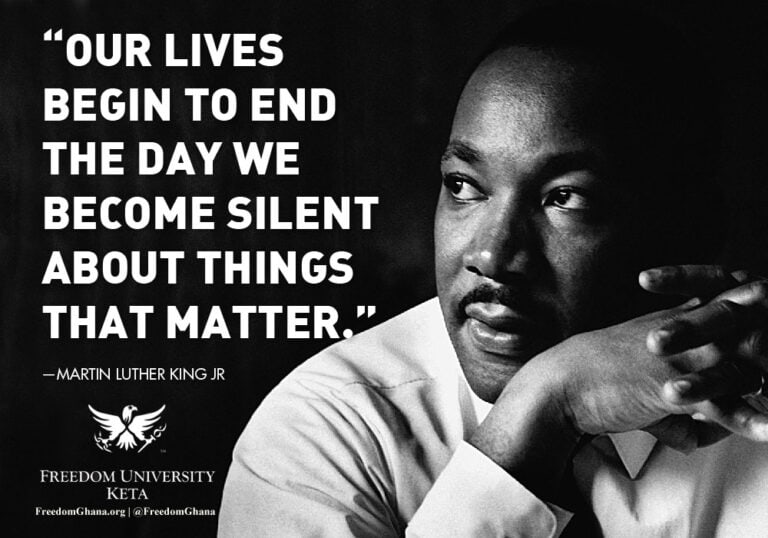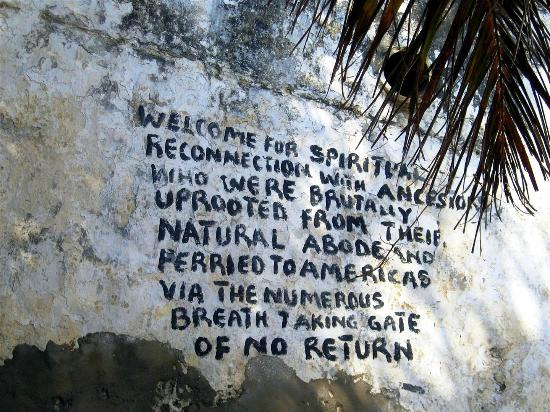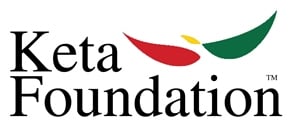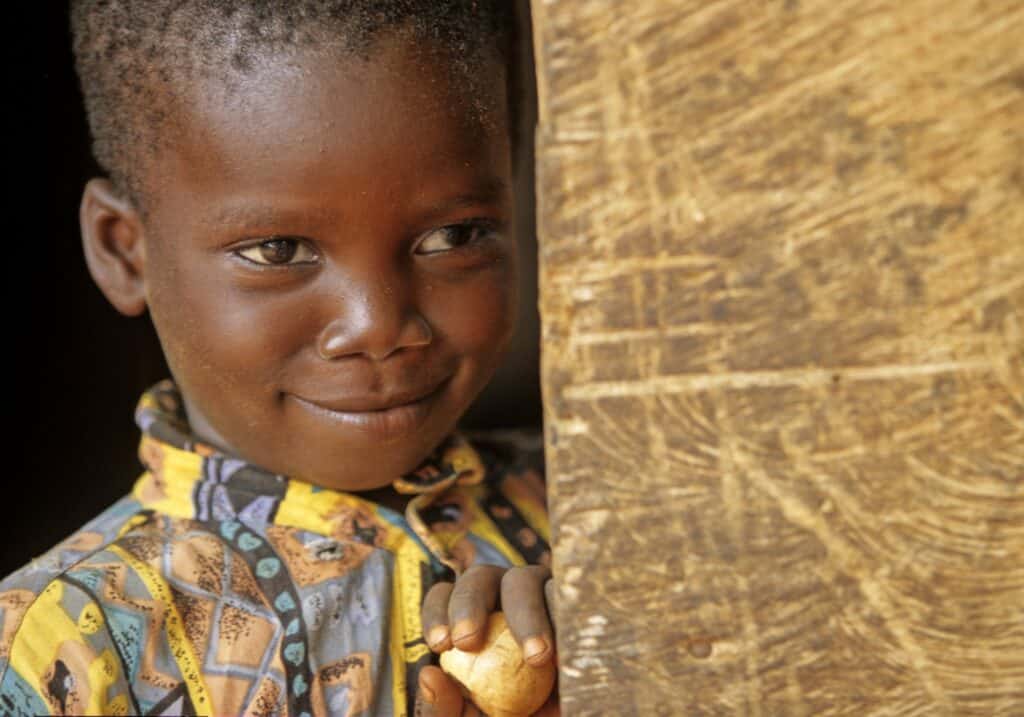Keta Foundation - What We Do
Keta Global Slavery Summit
A summit to eradicate the roots of modern slavery
BacKground
Freedom University, Keta, Volta Region, Ghana, was founded June 18, 2013, by Fortune Norris Addor and Michael Flannery and Registered as a Non-Profit Organization in accordance with The Registrar General’s Department Companies Act, Section 24 (Act 179) of the Companies Code (1963). In 2015, the Keta Foundation partnered with Freedom University to assist in their efforts.
Situated on nearly 25 acres of prime seafront property awarded to Freedom University by Keta Municipal Assembly in perpetuity, Freedom Campus (the site of Freedom University) offers hope, job creation and a boost to the economy of the people of Keta and the Volta Region. Proximity, and a good road system connecting Keta and the capital city of Accra and its international airport (two hours), facilitates travel, communications and logistics.
Need
Ghana is just one example of the greater problem of modern slavery in Africa and other parts of the world. The latest US State Department Trafficking in Persons Report (TIPP), released July 27, 2015, indicates that between 20 and 26 million people are in slavery today. Even from a cursory glance at this report, it is all too apparent that the need for improving the lives and opportunities for people in the Volta Region and beyond is now more important than ever. Ghana has been placed on a Tier 2 Watch List for human trafficking. According to the report:
“Ghana is a source, transit, and destination country for men, women, and children subjected to forced labor and sex trafficking. The trafficking of Ghanaians, particularly children, within the country is more prevalent than the transnational trafficking of foreign migrants. Ghanaian boys and girls are subjected to forced labor within the country in fishing, domestic service, street hawking, begging, portering, artisanal gold mining, quarrying, herding, and agriculture. Ghanaian girls, and to a lesser extent boys, are subjected to prostitution within Ghana. Child prostitution is prevalent in the Volta region and is growing in the oil-producing western regions.”
The practice of slavery continues around the world today, as always, fueled by avarice, poverty and ignorance. We seek to eliminate these root causes of modern slavery through an annual solutions-based colloquium to produce immediate, actionable impact.

Solution
Personal contact to higher educational institution faculty, staff , historians and anti-slavery experts in order to enlist them for the non-profit Freedom University Pioneer program, was met not only with a high level of interest, but also repeated demand for an extended, Aspen-like summer conference, to enable them to participate in social activist projects. The high level of interest is attributable to the originality and pragmatic nature of our programs, and in particular, to the Keta University Advisory Board, a pre-eminent body in Slave Coast history and Science.
This concept has now been embodied in a conference known as the Keta Global Slavery Summit, to be held at Keta, Ghana. Eminent participants, scholars, Strategic Partners, national ministries and international media are among those who have already declared their intention to attend. Countries represented, to date, include the USA, UK, South Africa, British West Indies, Ghana, Benin, Canada, and Israel. Others are expected.
- See Pioneer program: http://freedomghana.org/freedom-corps-ghana-fcg-programme/
With this need in mind, we are organizing a landmark three week conference in Ghana, the Keta Global Slavery Summit, from July 1 – 20, 2016. This summit will serve as the first-ever colloquium to blend scholarship and social activism to combat modern slavery. We will explore pragmatic solutions for attacking fundamental factors in the development and propagation of slavery: ignorance, poverty, lack of opportunity, intolerance and greed. For the first time, scholarship will be joined with social activism to examine the pathological histology of modern slavery, and attack it through science, commerce, education, technology and other weapons at our disposal.
 The setting will be Freedom Campus, located next to the infamous slave dungeon and shipping port, Fort Prinzenstein. This offers a degree of historical immediacy and poignancy that can never be emulated elsewhere.
The setting will be Freedom Campus, located next to the infamous slave dungeon and shipping port, Fort Prinzenstein. This offers a degree of historical immediacy and poignancy that can never be emulated elsewhere.
Members of our unequaled Advisory Board and other distinguished experts, will present papers on a range of burning topics, including child slavery, Eastern European prostitution, work bondage, the Black Jews of Ghana, the West Indian economic model to improve an impoverished people’s standard of living, gender equality, the roles of nutrition and health in promoting shared wealth, and much more.
We seek reasonable short and long-term solutions to emerge from the collective efforts of the participants, with concrete, detailed and achievable plans of how each will be financed.
The three-week summit is broken down into 1-week themes as follows:
- Week I – Will feature one day of talks and discussions on advances in harvesting, processing and storage of crops, and better utilization of indigenous food stuffs. A second full day will be dedicated to construction, building materials and state-of-the-art solutions in affordable/residential housing, and government sector institutional and commercial construction solutions.
- Week II – Offers two subjects (one day each): Science and Technology; and Communications/IT.
- Week III – Features two one day presentations and discussions. The first addresses the prevention of malaria and a range of vector-borne diseases through tested new scientific solutions; the second, the vital importance of correct nutrition in disease prevention and good health
Each session is open to all summit participants and will be attended by experts from the relevant fields, as well as government, NGOs, and the private sector. This is a fully pragmatic exercise, one that engages the best minds that we can bring to bear on problems and opportunities in Ghana, and to some extent, Africa as a whole.
Much like a stone cast in a pond, each participant becomes a new, informed activist-ripple imparting their knowledge and our influence when they return to their communities.
team
Freedom University, Keta, Volta Region, Ghana
Freedom University, Keta, Volta Region, Ghana, was founded June 18, 2013, by Fortune Norris Addor and Michael Flannery and Registered as a Non-Profit Organization in accordance with The Registrar General’s Department Companies Act, Section 24 (Act 179) of the Companies Code (1963).
Fortune Norris Addor – Fortune’s apprenticeship took place in Echo Contract Ltd, a leading Ho, Volta Region, road building, residential construction and engineering company, founded by his father, Crossly K. Addor in the 1970s. He earned a B.Sc. in Business Management from the University of Ghana in Accra, followed by Business Studies at MSBM, in London, before joining a French high tech energy company as African Development Manager. Fortune, co-founder of Freedom University Keta, represents Norris Hill & Partner as Managing Director in Africa.
Michael Flannery – Michael studied languages & economics at the universities of Vienna, Heidelberg & the U.S. Navy Intelligence School. He took part in seminars under Nobel Prize winner, William Faulkner at the University of Virginia and studied under Cyrus Hoy at Virginia and Vanderbilt University. A graduate of Thunderbird School of Global Management, he has held directorships in international consumer products, design & advertising corporations. His historical work, Golf Through The Ages: 600 Years of Golfing Art, is the standard reference for sporting art & European ball games, 1120 – 1890. He is a Partner in Norris Hill & co-founder of Freedom University, Keta.
Keta Foundation
 Gavin P. Smith, Executive Director of the Keta Foundation, holds a Master of Global Management with distinction from Thunderbird School of Global Management; an MBA from the College of William & Mary Mason School of Business; and a BA in History from Wake Forest. A global professional and consultant with 20 plus years of experience in digital marketing, award-winning broadcasting and journalism, Gavin is also Executive Consultant to Freedom University Keta.
Gavin P. Smith, Executive Director of the Keta Foundation, holds a Master of Global Management with distinction from Thunderbird School of Global Management; an MBA from the College of William & Mary Mason School of Business; and a BA in History from Wake Forest. A global professional and consultant with 20 plus years of experience in digital marketing, award-winning broadcasting and journalism, Gavin is also Executive Consultant to Freedom University Keta.
Support
The founders and programs are bolstered by support from the Freedom University Advisory Board and a dream team of scholars, historians and scientists. These include Harvard Professor of History, and African and African-American Studies, Emmanuel Akyeampong, distinguished scientist and former Chancellor of Central College Ghana, Victor Gadzekpo, Professor Elysée Soumonni of the Université Nationale du Bénin, Professor Kodzo Gavua, University of Ghana, Accra, and Professor Sandra Green of Cornell University.
In addition, partnerships, both domestic and international, are being formed with key educational and other institutions, corporations and organizations, providing an on-going input of ideas, scholarship, participants, possibilities and revenues for our various programs.
Key Success Factors

Job creation, improved education, nutrition, health and welfare are our goals. To achieve these targets, we expect to create one new actionable solution during each week of the summit. These solutions will be created by expert attendees themselves. At the end of the summit, we intend to have those very same groups commit to implementation of those solutions beginning immediately.
Attendance will be another factor. In addition to an estimated 40 – 50 participants each of the three weeks, there will also be up to 30 local and African entrepreneurs, government officials, investors and other attendees for specific subjects, who may join us sporadically throughout the event. A strong turnout will offer a promotional springboard to increase attendance and grow the Summit in ensuing years. Therefore, it is critical to get an average total attendance of at least 35+ individuals for the first Summit.
The Keta Global Slavery Summit will unite leading (among others) international scholars, scientists, economists, architects, healthcare specialists, entrepreneurs and celebrities, to find pragmatic solutions and funds to implement them for problems that are shackles impeding economic development – the key to a secure future for the people of Ghana. Only through a paradigm shift of combining education with activism can we truly do our part in the eradication of all forms of modern slavery.
Where better to start than at the heart of the Slave Coast – Keta, Ghana?
